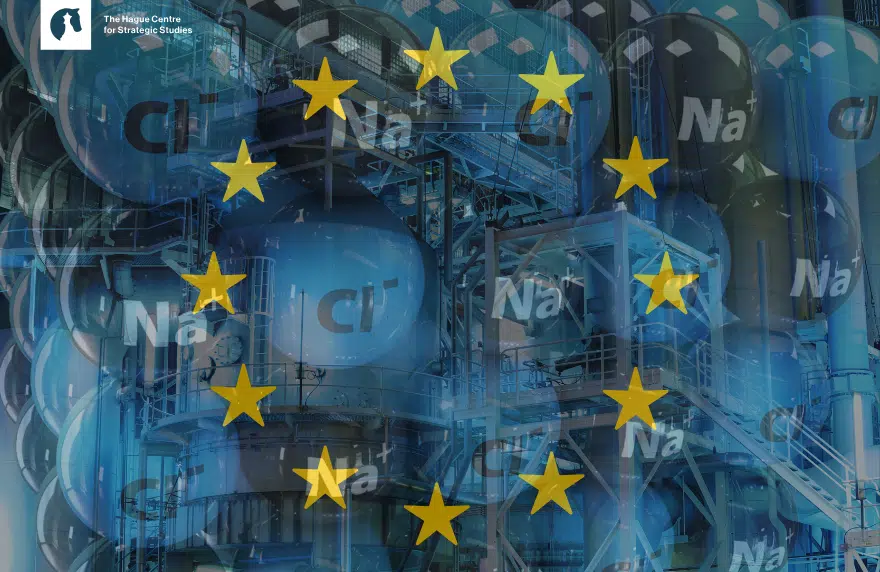Research
Comparison of future costs of renewable energy in the Netherlands and Saudi Arabia for two value chains.
The costs of energy are an important part of various industrial value chains and are very decisive for the competitive position of the industry. In three studies commissioned by the Royal VNCI and the National Program for Sustainable Industry, TNO, The Hague Centre for Strategic Studies (HCSS) and Roland Berger compared the future energy costs of the renewable energy supply for industrial processes in the Netherlands with Saudi Arabia for two value chains: the chlor-alkali chain and the production of sustainable aviation fuel (SAF) from household waste via syncrude. In addition, the research examines the strategic implications for sectors that may establish themselves outside Northwestern Europe.
Conclusions HCSS Research
HCSS analysed the strategic importance of the two industries for the two regions as well as the types of interventions that the two governments are generally undertaking to support domestic industry in a broader sense.
The analysis takes place in the context of a complex geopolitical landscape. The US-based liberal world order is under severe pressure. Geopolitics is dominated by new alliances that challenge the ‘Western bloc’ as well as growing tensions between the US and partners, especially in Europe. Economic coercion is increasingly used as a part of foreign policy, high-tech competition is in full swing, and there is a heightened security risk for (critical) infrastructure and strategic industries. In response to these geopolitical challenges, Northwestern Europe and the EU, as well as Saudi Arabia aim to become more strategically autonomous. They seek economic prosperity and globally competitive industries and pursue societal wellbeing.
Strong domestic chloralkali and sustainable aviation fuel (SAF) industries are strategically important for the EU’s ambitions. A decrease in the domestic capacity for chloralkali and a failure to support the emerging SAF industry will create import dependencies that are geopolitically and economically problematic and that can have negative effects on societal resilience. Local production of chloralkali and SAF serves strategic sectors (defence, energy transition, healthcare etc.) and makes the EU more resilient to coercive action by global players. It contributes to societal resilience through security of supply and affordability in vital sectors.
Authors: Irina Patrahau, Lucia van Geuns, Berend Kwak, Ron Stoop and Philippe van Pappelendam
(* an update to the document was made in July 2025 to reflect the accurate ReFuelEU Aviation mandates.)
About chlor-alkali and SAF (via syncrude)
The chlor-alkali product chain provides essential raw materials for a wide range of applications, such as: high tech, clean tech, health and defense. The competitiveness of sectors such as the construction and automotive industries depend on local availability of products from this product chain. In addition, the expertise within the chlor-alkali industry, for example in the field of electrochemistry, is of great importance for the development of hydrogen production and battery raw materials.
Local production of Sustainable Aviation Fuel from household waste is important for the development of a low carbon aircraft sector. The technology of gasification of household waste to syncrude is the basis for the development of a circular product chain for many chemical building blocks.
The three studies, “Study Energy Intensive Industries – Phase 1“, “The strategic importance of chloralkali and sustainable aviation fuel for the EU & Saudi Arabia” (HCSS) and “Comparison of future cost of renewable energy between regions” (TNO), can be found on the websites of the relevant parties from 2 July 2025.









